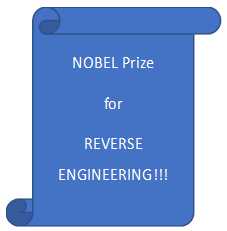Welcome to this post about patents and chips. Not a lot has been written about this combination, but there is a lot to know, especially for the innovators and entrepreneurs themselves. In this three-weekly series, I talk about various aspects, from a dual perspective of a patent agent and a semiconductor entrepreneur. If you like the article and read it on LinkedIn, give it a thumbs up, and/or click on Follow. If you like to work with us for your next patent, "contact us" info is on www.icswpatent.com. You can also subscribe/unsubscribe for short email alerts when the next post is available.
It seems like a bunch of things with contradicting objectives: patents and secrets help companies earn money, whereas open-source developments and reverse engineering don't. Or do they? And are companies the same as humanity?
I'm not going to try to answer the last question. But I'll argue that each of the above helps humanity.
 Some people don't like patents because they give companies a monopoly on some technology. The truth is that this technology probably wouldn't exist if it weren't for the companies (or individual inventors) investing in it first, often risking their entire investment—whether small or large. Out of every so many ideas, maybe 30-90% lead nowhere, much increasing the average cost per invention. Even if an invention is solid, there is no guarantee that it will be a success in the market, or that you will even earn your investment back.
Some people don't like patents because they give companies a monopoly on some technology. The truth is that this technology probably wouldn't exist if it weren't for the companies (or individual inventors) investing in it first, often risking their entire investment—whether small or large. Out of every so many ideas, maybe 30-90% lead nowhere, much increasing the average cost per invention. Even if an invention is solid, there is no guarantee that it will be a success in the market, or that you will even earn your investment back.
You might make the investment and have the creativity to come up with an idea, develop it, test it, and improve it, but if someone else can then come and then snatch the market away because they have some other advantage, like the money or the network to sell it, then you have little incentive to invest in the first place. A patent resolves this. It protects your investment for a reasonable duration. For example, it allows you to negotiate a reasonable compensation with some other party and jointly offer the product or technology for sale. If the product or technology has more value (to humanity) than the price you're asking, customers will buy it. If the other party's compensation is not reasonable, you go it alone, or find other partners.
The nice thing about a patent is that it gives you predefined rights for a reasonable period. After that, your technology becomes public domain, and everybody is free to use it. Humanity can be happy.
What is a reasonable period of time? A patent gives you 20 or 21 years, which for most inventions is enough to earn back the investments, and to keep innovating. In the case of microelectronics, 20 or 21 years equals four eternities. It seems pretty reasonable to me. There are industries where you can't enter the market the first 10 years or so into the development of your product. Think of medical implantable devices, for instance. There, the 20 years isn't all that much. But overall, for many industries, it's not bad.
Patents are (with some exceptions) published some 18 months after the earliest filing. This allows others in the field to get new insights, and possibly develop further technology. To use that improved technology, they can negotiate a cross-licensing deal (or wait until the original patent expires). In this way, patents stimulate collaboration, and ultimately, humanity gets access to better and/or more competitive products and services.
Inventors don't patent everything they invent. They don't need to, because some inventions can be protected effectively by keeping them secret. The secrecy is usually guarded with non-disclosure agreements. Like patents, secrecy tends to have a lifetime too, and sooner or later your intellectual property leaks out. Your invention may be reinvented somewhere else, or somebody manages to reverse engineer your product, and sets out to share the market with you. The lifetime is less well defined than the lifetime of a patent. But the economic considerations are similar. If your invention has value to humanity, and the price you're asking is reasonable, customers will come.
Q.E.D.
This doesn't necessarily mean the reverse, that every invention has value for humanity if customers buy it. For example, sugary drinks may offer less benefit than downsides to humanity (employment opportunities vs health of the general population). Yet, they sell a lot.
For semiconductors, I wrote before what type of IP might be protected by trade secrets. I feel that semiconductors, and electronics in general, have greatly benefitted humanity. And yes, that includes the many secrets that were never published.
Now let's look at open-source developments. To me it is totally obvious that they help humanity. No need to ponder.
 But reverse engineering??
But reverse engineering??
Have you ever done it? I have, although it was many years ago. One time was in the context of research performed on a university. It wasn't done for copying a product, or making money. It was to research a specific stability issue on semiconductors, and the research results were published for all to see. The company whose product I reverse engineered never lost a penny of sales. Another time was in the context of a competitive product development. A well-known semiconductor company was charging $80 for a 2 mm2 chip. My customer needed two of those, in an instrumentation product that sold for just over $250. We changed the architecture to suit the product, reviewed the original and found nothing out of the ordinary (the core design was not patented, and in wide use in the industry), and made our customer a $2.50 ASIC (I think it was 5-micron technology!) that was as accurate as the design that used the off-the-shelf products. So, a big guy lost some potential income from a product that was just a tad overpriced. Maybe they were gouging the market. Regular consumers won (humanity won) in what I would call a positive example of how capitalism can work.
In neither of these reverse engineering cases were any laws broken. No IP was stolen. No designs were copied. In both cases, regular people won. In one of the cases, a competitor lost some business. That's life.


